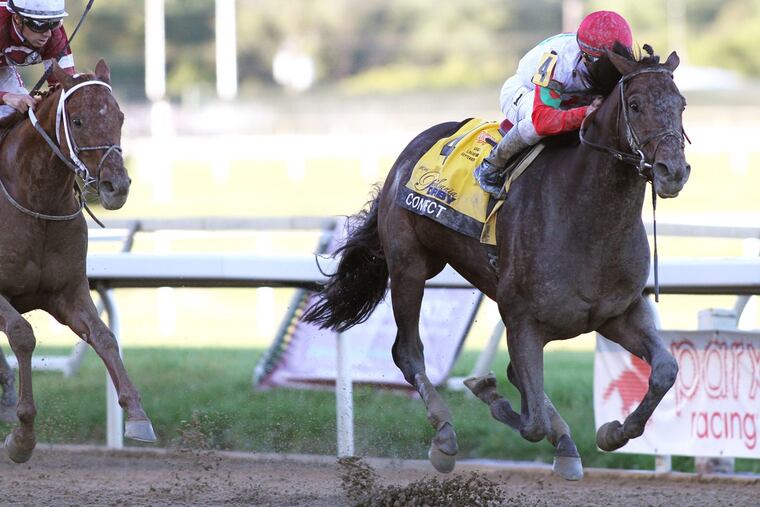Pa. horses are making hay, while the race industry falters | Editorial
If multiple billions can't turn around an industry, isn't it time we asked how much longer we're willing to try before altering the arrangement?

A report released last week confirms that the long decline in the horse-racing industry continues. In Pennsylvania, track attendance is down, electronic wagering is down, the number of races is down, and the numbers of horses bred and horses racing have all declined. Pennsylvania is not alone; this downward trend is seen throughout the industry.
This decline was one of the reasons the state legalized gambling in 2004. The gaming act was designed to use a portion of the revenue from slot machines to help restore the glory to horse racing in the state.
Gaming has been such a success that Pennsylvania now trails only Nevada in gambling activity. Taxes on casino revenues are divided among a few slices of pie, the largest being for reductions in property taxes. The second-largest cut goes to the horse-race industry, which last year, received $239 million alone. Since 2006, the horse-race industry has received a whopping $2.4 billion.
That's a staggering amount of corporate welfare. So staggering, it helps to put it in perspective.
Last year, more than 17,000 horses competed in races around the state (down from more than 20,000 in 2013). The $239 million in revenue from the casino tax comes out to more than $14,000 a horse.
Which means track horses make as much or more than 143,000 households earn in this city alone.
Obviously, the horses don't get the money as annual income. The money is disbursed to breeders, racetrack improvements, purses for horse racing, and health and pension benefits for workers. The industry argues that improving racing "enhances the equine industry and agriculture on a broad-based economic level."
There are so many ways to look at this money, but the only equation that matters is this: If multiple billions can't turn around an industry, isn't it time we asked how much longer we're willing to try before altering the arrangement?
Not only has casino money not halted horse racing's decline, but the rather depressing report released last week detailed no plan for turning things around, other than a mention of more marketing and more simulcast races in casinos.
More important, no one is demanding accountability from the industry, an explanation for why all this money isn't helping, or suggesting a shift in how much casino money goes to the industry. Quite the contrary, recent revisions that would again expand gambling in Pennsylvania give the horse-race industry a buffer, prohibiting the state from diverting money out of the industry. (In 2011, Gov. Tom Corbett diverted $47 million from the race-horse fund to the general fund; and the next year diverted money for agricultural programs.)
We don't have to point out how many productive ways $2.7 billion — or even part of that — might be spent for pressing needs around the state.
To be sure, these billions of dollars are not public money per se: They are actually taxes on the money lost by slot machine gamblers. In other words, gambling losses in one sector (casinos) are used to prop up losses in another gambling sector (racing). In a state that has to scramble to balance its budget each year, is this not madness?